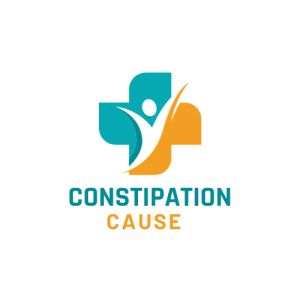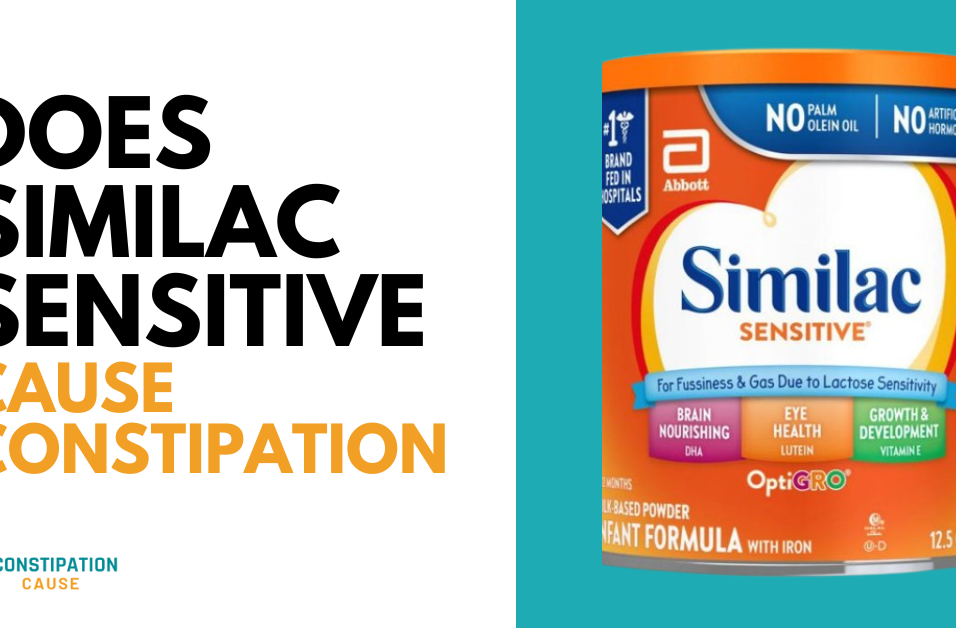Have you ever found yourself caught between the benefits of iron supplementation and the discomfort of constipation? It’s a common dilemma that many face when trying to address iron deficiency, an essential health concern that affects millions worldwide.
So, if you are also one of the many individuals who wonder; do iron supplements cause constipation? this article is here to clear all your queries. From discussing iron’s vital role in our bodies and its potential to disrupt our digestive system to revealing the science behind iron absorption to exploring practical strategies for maintaining gut health, we have got you covered.
So, let’s get started
Do Iron Supplements Cause Constipation?
Iron supplements are commonly prescribed to treat or prevent iron deficiency anemia, a condition characterized by low levels of red blood cells due to insufficient iron in the body. While these supplements are effective in replenishing iron stores and improving symptoms of anemia, they can also have certain side effects, one of which is constipation.
Constipation is a common gastrointestinal side effect associated with iron supplementation. This occurs for several reasons:
- Slow Digestion: Iron supplements can slow down the digestive process, causing food to move more slowly through the intestines. This delay in transit time can lead to harder stools and difficulty passing them.
- Increased Water Absorption: Iron has a tendency to absorb water in the gastrointestinal tract, which can result in dry, hard stools that are difficult to pass.
- Changes in Gut micro biota: Iron supplementation may alter the balance of beneficial bacteria in the gut, which can affect digestion and bowel movements.
- Gastrointestinal Irritation: Iron supplements can irritate the lining of the stomach and intestines, leading to inflammation and discomfort, which may contribute to constipation.
- Dosage and Formulation: The dosage and formulation of iron supplements can also influence the likelihood of experiencing constipation. Higher doses of iron or certain forms of iron, such as ferrous sulfate, are more likely to cause constipation compared to lower doses or different forms of iron, such as ferrous gluconate or ferrous fumarate.
To help prevent or alleviate constipation associated with iron supplementation, individuals can take the following measures:
- Stay Hydrated: Drinking plenty of water can help soften stools and promote regular bowel movements. Aim to drink at least eight glasses of water per day, or more if you’re experiencing constipation.
- Increase Fiber Intake: Consuming fiber-rich foods such as fruits, vegetables, whole grains, and legumes can add bulk to stools and facilitate bowel movements. It’s important to gradually increase fiber intake to avoid exacerbating constipation.
- Take with Food: Taking iron supplements with food can help reduce gastrointestinal irritation and improve absorption. However, avoid consuming calcium-rich foods or beverages, as calcium can interfere with iron absorption.
- Consider Slow-Release Formulations: Slow-release or extended-release formulations of iron supplements may be gentler on the digestive system and less likely to cause constipation compared to immediate-release formulations.
- Discuss Adjustments with a Healthcare Provider: If constipation persists or becomes severe, speak with a healthcare provider. They may recommend adjusting the dosage, switching to a different form of iron supplement, or exploring alternative treatment options.
Does black poop mean iron tablets are working?
Black stool can sometimes be a side effect of iron supplementation, indicating that the iron tablets are being absorbed by the body. However, black stool can also result from other factors, such as certain foods or medications. If you notice black stool after taking iron tablets, it’s essential to consult your healthcare provider to confirm the cause and ensure that your iron levels are being adequately replenished.
Understanding Iron Supplements
Iron supplements play a crucial role in maintaining overall health, particularly in addressing iron deficiency anemia, a condition characterized by low levels of red blood cells due to insufficient iron in the body. Understanding the various forms of iron supplements and their common uses is essential for managing iron deficiency and optimizing health outcomes. Do Iron cause constipation this question will also arise in people mind. Read this and clear you concepts.
Overview of Iron Supplements:
Iron supplements are oral medications designed to replenish iron stores in the body and treat or prevent iron deficiency anemia. They are available in various forms, including ferrous sulfate, ferrous gluconate, ferrous fumarate, and iron polysaccharide complex. These formulations differ in their elemental iron content and bioavailability, which refers to the amount of iron that can be absorbed and utilized by the body.
Common Uses:
- Treatment of Iron Deficiency Anemia: Iron supplements are primarily prescribed to treat iron deficiency anemia, a condition characterized by low levels of hemoglobin and red blood cells due to insufficient iron. This type of anemia can result from inadequate dietary intake of iron, impaired absorption of iron, or increased iron loss due to bleeding.
- Prevention of Iron Deficiency: Iron supplements may also be used to prevent iron deficiency in individuals at risk, such as pregnant women, infants, children, adolescents, and individuals with chronic medical conditions that increase iron requirements or impair iron absorption.
Essential Role of Iron in the Body:
Iron is an essential mineral that plays a vital role in various physiological processes within the body:
- Oxygen Transport: Iron is a key component of hemoglobin, a protein found in red blood cells that binds to oxygen and transports it from the lungs to tissues throughout the body. Adequate iron levels are necessary for maintaining optimal oxygen delivery to cells and tissues, supporting energy production and overall vitality.
- Energy Metabolism: Iron is involved in the production of adenosine triphosphate (ATP), the primary source of energy in cells. Iron-dependent enzymes play a critical role in cellular respiration and the metabolism of carbohydrates, fats, and proteins, contributing to overall energy metabolism and vitality.
- Immune Function: Iron is essential for the proper functioning of the immune system. It is required for the proliferation and activity of immune cells, including lymphocytes and macrophages, which play a crucial role in defending the body against infections and maintaining immune homeostasis.
- Cognitive Function: Iron is necessary for optimal cognitive function and brain development. Iron deficiency has been associated with impaired cognitive performance, reduced attention span, and developmental delays, particularly in infants, children, and adolescents.
Iron Supplements Side Effects
Common side effects of iron supplements include constipation, nausea, vomiting, stomach pain, and dark stools. Less common side effects may include diarrhea, heartburn, and black stool. If you experience severe or persistent side effects, consult your healthcare provider.
Iron Supplements for Anemia
Iron supplements are commonly prescribed to treat iron deficiency anemia, a condition characterized by low levels of red blood cells due to insufficient iron. They help replenish iron stores in the body, support the production of hemoglobin, and improve symptoms such as fatigue, weakness, and pale skin associated with anemia.
How to Take Iron Pills Correctly:
To maximize absorption and minimize side effects:
- Take iron supplements on an empty stomach if possible, or with a small amount of food to reduce stomach upset.
- Avoid taking iron supplements with calcium-rich foods or beverages, as calcium can interfere with iron absorption.
- Do not take iron supplements with antacids, dairy products, or caffeine, as they can also reduce iron absorption.
- Take iron supplements with vitamin C-rich foods or a vitamin C supplement to enhance iron absorption.
- Follow the dosage and timing instructions provided by your healthcare provider. Do not exceed the recommended dose without consulting your healthcare provider.
- If you experience gastrointestinal side effects, such as constipation or stomach upset, speak with your healthcare provider. They may recommend adjusting the dosage, switching to a different form of iron supplement, or taking additional steps to manage side effects.
Iron’s Role in the Body
Iron plays a multifaceted role in maintaining overall health, with its functions extending beyond simple oxygen transport. Its involvement in various physiological processes underscores its significance in supporting vital bodily functions.
1. Blood Formation:
Iron is indispensable for the production of hemoglobin, the protein molecule in red blood cells responsible for transporting oxygen from the lungs to tissues throughout the body. Hemoglobin consists of four protein chains called globins, each of which surrounds a group containing iron. Iron binds to oxygen in the lungs, forming ox hemoglobin, which is then transported via the bloodstream to tissues where oxygen is released to support cellular metabolism. Without sufficient iron, the body cannot produce an adequate amount of hemoglobin, leading to decreased oxygen-carrying capacity and the development of iron deficiency anemia.
2. Oxygen Transport:
The primary function of hemoglobin, facilitated by iron, is the transport of oxygen. Iron’s ability to reversibly bind to oxygen molecules enables efficient oxygen delivery to cells and tissues, ensuring optimal cellular respiration and energy production. Adequate oxygen supply is vital for maintaining cellular viability, supporting metabolic processes, and sustaining overall organ function. Furthermore, iron is also involved in the synthesis of myoglobin, a protein found in muscle cells that stores oxygen and facilitates its release during periods of increased demand, such as exercise.
3. Energy Metabolism:
Iron is intricately involved in cellular energy metabolism, serving as a cofactor for enzymes involved in the electron transport chain and oxidative phosphorylation. These processes occur within mitochondria, the cellular powerhouses responsible for generating adenosine triphosphate (ATP), the universal energy currency of cells. Iron-dependent enzymes play a pivotal role in facilitating the conversion of nutrients, including carbohydrates, fats, and proteins, into usable energy, thereby supporting overall metabolic function and vitality.
4. Immune Function:
Iron plays a crucial role in the immune response, influencing the proliferation, differentiation, and activity of immune cells involved in host defense against pathogens. Iron is required for the optimal functioning of immune cells, including lymphocytes, macrophages, and neutrophils, which mediate immune surveillance, phagocytosis, and antigen presentation. Additionally, iron regulates the expression of genes involved in the innate and adaptive immune response, modulating inflammatory signaling pathways and immune cell function.
Do Iron Pills Cause Weight Gain?
Iron pills, as supplements, do not directly cause weight gain. However, their impact on weight can be indirect and related to the underlying condition they are treating, namely iron deficiency anemia.
Iron deficiency anemia occurs when the body lacks sufficient iron to produce an adequate amount of hemoglobin, the protein in red blood cells that carries oxygen to tissues. This condition can lead to symptoms such as fatigue, weakness, and decreased energy levels, which may result in reduced physical activity and potentially weight gain.
When iron deficiency is treated with iron supplements, individuals often experience improvement in these symptoms as their iron levels normalize. With increased energy levels and improved vitality, individuals may feel more motivated to engage in physical activity and exercise, which can contribute to weight management and even weight loss in some cases.
On the other hand, some individuals may experience gastrointestinal side effects from iron supplements, such as nausea, stomach upset, or constipation. These side effects can temporarily impact appetite and digestion, potentially leading to fluctuations in weight. However, any weight changes associated with iron supplementation are typically minimal and short-lived.
Potential Link between Iron Supplements and Constipation
Iron supplements are often prescribed to address iron deficiency anemia, a condition characterized by low levels of red blood cells due to insufficient iron in the body. While these supplements are effective in replenishing iron stores, they can also lead to constipation as a common side effect. Constipation refers to difficulty in passing stools or infrequent bowel movements, which can cause discomfort and affect quality of life. Understanding the potential link between iron supplements and constipation is crucial for managing this side effect and ensuring optimal treatment outcomes.
Mechanisms behind Iron-Induced Constipation
Constipation associated with iron supplementation can be attributed to several physiological mechanisms:
- Absorption and Digestive Impact: Iron supplements, such as ferrous sulfate, ferrous gluconate, and ferrous fumarate, are commonly used to increase iron levels in the body. However, the absorption of iron from these supplements can affect the gastrointestinal tract, potentially leading to constipation.
- Reduced Gastrointestinal Motility: Iron supplements have been shown to slow down the movement of food through the digestive tract. This delay in transit time can result in increased water absorption from the intestines, leading to dry, hard stools that are difficult to pass.
- Gastrointestinal Irritation: Iron supplements can irritate the lining of the stomach and intestines, causing inflammation and discomfort. This irritation can trigger changes in gastrointestinal motility and stool consistency, contributing to constipation.
- Interaction with Gut Micro biota: Iron supplementation may alter the composition and function of the gut micro biota. Disruptions to the gut micro biota can affect digestive processes and bowel movements, potentially leading to constipation.
- Absorption Dynamics: The absorption of iron from supplements can vary depending on factors such as the formulation of the supplement and individual differences in gastrointestinal physiology. Taking iron supplements on an empty stomach is often recommended for optimal absorption, but this can increase the risk of gastrointestinal side effects such as constipation.
Iron Dosage and Timing
The dosage and timing of iron supplementation can significantly influence digestive outcomes, including the likelihood of experiencing constipation.
- Dosage: Higher doses of iron supplements are more likely to cause constipation compared to lower doses. Healthcare providers often start with a lower dose and gradually increase it as tolerated to minimize gastrointestinal side effects. Finding the optimal dosage that balances effectiveness with tolerability is essential in managing constipation.
- Timing: Taking iron supplements on an empty stomach typically enhances absorption but may also increase the risk of gastrointestinal side effects, including constipation. Some individuals may find it more tolerable to take iron supplements with food to reduce irritation and minimize digestive discomfort. However, this may slightly reduce absorption efficiency.
Individual Variations
Several individual factors can influence the relationship between iron supplementation and constipation:
- Tolerance: Individuals vary in their tolerance to iron supplements. Some may experience constipation even at low doses, while others may tolerate higher doses without any adverse effects. It’s essential to monitor individual responses and adjust the dosage or timing of supplementation accordingly.
- Health Status: Certain underlying health conditions, such as gastrointestinal disorders or conditions affecting gastrointestinal motility, may predispose individuals to constipation when taking iron supplements. Individuals with pre-existing gastrointestinal issues may require closer monitoring and tailored management strategies.
Managing Iron-Induced Constipation
For individuals experiencing constipation as a result of iron supplementation, several strategies can help alleviate symptoms and improve gastrointestinal comfort:
- Hydration: Increasing fluid intake can help soften stools and promote regular bowel movements. Drinking plenty of water throughout the day can aid in preventing dehydration and easing constipation.
- Fiber-Rich Diet: Consuming a diet rich in fiber from fruits, vegetables, whole grains, and legumes can add bulk to stools and facilitate bowel movements. Increasing dietary fiber intake gradually can minimize bloating and discomfort.
- Stool Softeners or Laxatives: In some cases, healthcare providers may recommend over-the-counter stool softeners or laxatives to relieve constipation associated with iron supplementation. However, it’s essential to use these medications under medical supervision and avoid long-term dependence.
- Adjusting Iron Supplement Regimen: Healthcare providers may adjust the dosage, formulation, or timing of iron supplementation to minimize gastrointestinal side effects while maintaining adequate iron levels. Splitting the dose or switching to a different form of iron supplement may improve tolerability.
- Consulting Healthcare Provider: Individuals experiencing persistent or severe constipation should consult their healthcare provider for further evaluation and management. Healthcare providers can offer personalized recommendations and monitor for any underlying health issues contributing to constipation.
A. Hydration and Dietary Adjustments
- Drink plenty of water to stay hydrated and soften stools.
- Increase dietary fiber intake from fruits, vegetables, whole grains, and legumes to promote bowel regularity.
B. Slow Release Iron Supplements
- Slow-release formulations of iron supplements release iron gradually, reducing the risk of constipation.
- These formulations may be better tolerated by individuals with sensitive digestive systems.
Scientific Studies and Medical Perspectives
- Clinical studies investigate the incidence and management of constipation due to iron supplementation.
- Healthcare providers offer personalized recommendations based on individual risk factors and treatment responses.
Balancing Iron Needs and Digestive Comfort
- Individualized approach considers iron status, tolerance, and underlying health conditions.
- Regular monitoring of iron levels and symptoms ensures optimal treatment outcomes.
- Consuming iron-rich foods supports overall health while minimizing digestive discomfort.
Conclusion
In summary, iron supplementation is essential for addressing iron deficiency and maintaining overall health, but it can sometimes lead to digestive discomfort, including constipation. By staying hydrated, consuming fiber-rich foods, and considering slow-release iron supplements, individuals can alleviate constipation while ensuring adequate iron intake.
Navigating iron supplementation requires a balance between meeting iron needs and minimizing digestive discomfort. Regular monitoring of symptoms and iron levels, along with personalized recommendations from healthcare providers, can optimize treatment outcomes and promote digestive comfort.
Remember, if you experience persistent or severe constipation or have pre-existing digestive issues, consult your healthcare provider for personalized guidance.
I hope this article answered your question; ‘do iron supplements cause constipation?’
Frequently Asked Questions
How do you stop constipation when taking iron tablets?
Stay hydrated and eat fiber-rich foods to prevent constipation while on iron supplements.
Why is it harder to poop when taking iron?
Iron supplements slow down bowel movements, causing constipation for some individuals.
Does black poop mean iron tablets are working?
Black stool can indicate iron absorption but should be confirmed by a healthcare professional.
How can I increase my iron without constipation?
Consume iron-rich foods like spinach, lentils, and fortified cereals, and consider slow-release iron supplements.
How do you know if iron tablets are working?
Monitor your symptoms, including fatigue and pale skin, and consult a doctor to check your iron levels regularly.
Can individuals with pre-existing digestive issues safely use iron supplements?
Consult a healthcare provider to determine if iron supplements are appropriate and to discuss potential digestive side effects.









Leave feedback about this